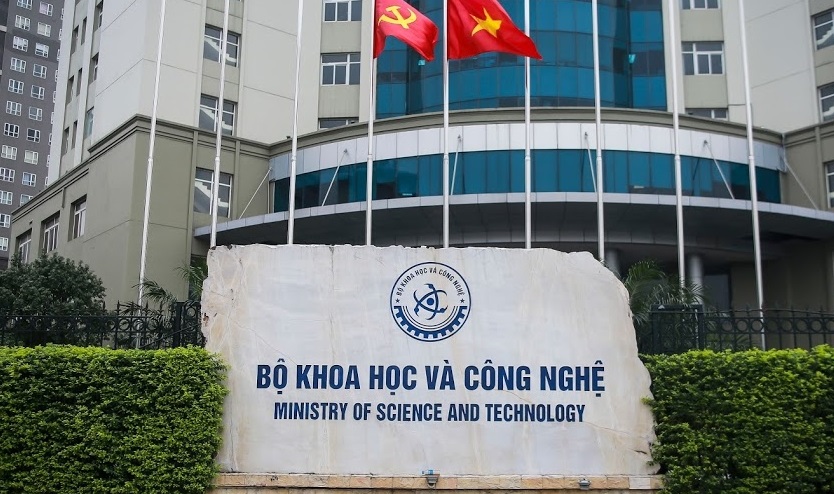What is bureau/agency/authority? Criteria for establishment of a bureau/agency/authority in Vietnam
What is bureau/agency/authority? What are the criteria for establishment of a bureau/agency/authority in Vietnam? - Huyen Tran (Tien Giang)

What is bureau/agency/authority? Criteria for establishment of a bureau/agency/authority in Vietnam (Internet image)
Regarding this issue, LawNet responded as follows:
1. What is bureau/agency/authority?
According to Clause 1, Article 21 of Decree 123/2016/ND-CP, a bureau/agency/authority is an institution of a ministry, functioning to give general advice and settle specific issues in one or several fields and assist the Minister in the state management and implementation of laws in sectors and fields under the ministry’s state management under the decentralization of powers or authorization by the Minister.
A ministry that manages physical and technical foundations in its central-to-local system may establish a bureau/agency/authority to perform internal administration.
2. Does a bureau/agency/authority have the legal entity status in Vietnam?
According to Clause 2, Article 21 of Decree 123/2016/ND-CP, a bureau/agency/authority has the legal entity status and its own seal and account; the director of a bureau/agency/authority may issue documents of specific application and documents providing professional guidance on the specialized sector or field under its management.
3. Criteria for establishment of a bureau/agency/authority in Vietnam
According to Clause 3, Article 21 of Decree 123/2016/ND-CP (amended in Decree 101/2020/ND-CP), the establishment of a bureau/agency/authority must satisfy the following criteria:
- Having objects of management in the specialized sectors or fields under the ministry’s state management in accordance with specialized laws;
- Being decentralized or authorized by the Minister to decide on issues within the scope of state management of the specialized sectors or fields.
- The workload requires to arrange 30 or more civil servants.
4. Organizational structure of a bureau/agency/authority in Vietnam
According to Clause 4, Article 21 of Decree 123/2016/ND-CP (amended in Decree 101/2020/ND-CP), a bureau/agency/authority consists of:
- Divisions;
- The Office;
- Inspectorate (if any);
- Sub-bureaus/sub-agencies/sub-authorities (if any);
- Public non-business units (if any).
5. Tasks and powers of ministers toward their ministries in Vietnam
Tasks and powers of ministers toward their ministries according to Article 24 of Decree 123/2016/ND-CP are as follows:
- To lead, direct and take personal responsibility for all aspects of work of their ministries; to direct units of their ministries in implementing approved strategies, master plans, plans, programs and projects, and perform tasks of their ministries assigned by the Government.
- To promulgate according to their competence or submit to the Government or Prime Minister for promulgation legal documents and policies on development of their ministries’ assigned sectors and fields; to guide, review and organize the implementation of such documents.
- To carry out the recruitment, appointment, relief from duty, dismissal, permission for resignation, suspension from the work, transfer, rotation, evaluation, planning, training, retraining, commendation, rewarding and disciplining of civil servants and public employees, and decentralize powers for management of civil servants and public employees to attached organizations and units in accordance with law.
- To decide on decentralization of powers and authorization to attached organizations or units.
- To decide on programs on scientific and technological research, and application of scientific or technological advances; standards, processes, regulations and technical- economic norms of sectors and fields according to their competence.
- To decide on the establishment of interdisciplinary coordination organizations in accordance with law.
- To decide on the appointment, relief from duty, dismissal, permission for resignation or suspension from work of general directors of general departments after receiving the Prime Minister’s opinions.
- To decide on the appointment, relief from duty, dismissal, permission for resignation, suspension from work, commendation, rewarding and disciplining of deputy general directors of general departments and heads and deputy heads of departments, bureaus/agencies/authorities, inspectorates, offices and public non-business units of their ministries and divisions of departments (if any), divisions of ministerial inspectorates and divisions of ministerial offices in accordance with law.
To decide on the decentralization of powers for appointment, relief from duty, dismissal, permission for resignation and suspension from work of heads and deputy heads of organizations and units of general departments, bureaus/agencies/authorities and public non-business units of their ministries with law.
- To lead and direct the inspection and examination of the implementation of laws in their ministries’ assigned sectors or fields nationwide.
- To manage and organize the effective use of working offices, assets and equipment, finance and state budgets allocated to them; to decide on measures to prevent and combat corruption, practice thrift and combat waste and manifestations of bureaucracy and authoritarianism in their ministries’ assigned sectors and fields.
- To promulgate their ministries’ working regulations, and direct and inspect the implementation of these regulations.
- To lead and direct the administrative reform and reform of the regime of official duties and civil servants in sectors and fields under their ministries’ state management.
- To take the initiative in closely coordinating with agencies of the Party, National Assembly, Supreme People’s Court, Supreme People’s Procuracy, Central Committee of the Vietnam Fatherland Front and central bodies of socio-political organizations; to give explanations about matters of concern of the Ethnic Council or National Assembly Committees;
To answer questions raised by National Assembly deputies and petitions of voters, the Vietnam Fatherland Front and socio-political organizations on matters under their ministries’ management.
- To perform other tasks assigned by the Government or Prime Minister.
- Key word:
- bureau/agency/authority in Vietnam
- Cases of land rent exemption and reduction under the latest regulations in Vietnam
- Economic infrastructure and social infrastructure system in Thu Duc City, Ho Chi Minh City
- Regulations on ordination with foreign elements in religious organizations in Vietnam
- Increase land compensation prices in Vietnam from January 1, 2026
- Determination of land compensation levels for damage during land requisition process in Vietnam
- Who is permitted to purchase social housing according to latest regulations in Vietnam?
-

- Notable new policies of Vietnam effective as of ...
- 16:26, 11/04/2025
-
.Medium.png)
- Notable documents of Vietnam in the previous week ...
- 16:21, 11/04/2025
-
.Medium.png)
- Notable documents of Vietnam in the previous week ...
- 16:11, 02/04/2025
-
.Medium.png)
- Notable new policies of Vietnam to be effective ...
- 16:04, 02/04/2025
-
.Medium.png)
- Notable new policies of Vietnam effective from ...
- 14:51, 21/03/2025

 Article table of contents
Article table of contents
